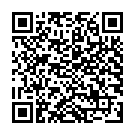|
|
|
| Module code: MST2.EN3 |
|
|
1S (1 hour per week) |
|
1 |
| Semester: 3 |
| Mandatory course: yes |
Language of instruction:
English/German |
Assessment:
Project work
[updated 05.10.2020]
|
MST2.EN3 (P231-0024) Mechatronics and Sensor Technology, Bachelor, ASPO 01.10.2019
, semester 3, mandatory course
MST2.EN3 (P231-0024) Mechatronics and Sensor Technology, Bachelor, ASPO 01.10.2020
, semester 3, mandatory course
|
15 class hours (= 11.25 clock hours) over a 15-week period.
The total student study time is 30 hours (equivalent to 1 ECTS credits).
There are therefore 18.75 hours available for class preparation and follow-up work and exam preparation.
|
Recommended prerequisites (modules):
MST2.EN1 Business English for Mechatronics Engineers
MST2.EN2 Technical English and Professional Presentations for Mechatronics Engineers
[updated 12.04.2021]
|
Recommended as prerequisite for:
MST2.SPR Mechatronics Project in English
[updated 13.04.2021]
|
Module coordinator:
Dr. Julia Frisch |
Lecturer: Dr. Julia Frisch
[updated 01.10.2020]
|
Learning outcomes:
The modules _Business English for Mechatronics Engineers_, _Technical English for Mechatronics Engineers_, _Applying for an Engineering Job_, as well as _Technical Reports and Presentations for Mechatronics Engineers_ in the "Mechatronics Project in English" module should be seen in conjunction with one another. The goal is for the students to develop their English language skills in the professional and technical field from the desired entry level B1 to B2 of the European Framework of Reference for Languages within the course of the respective modules.
After successfully completing this module, students will be familiar with the cultural differences between job application procedures in Germany and in English-speaking countries. They will be able to read and understand English-language job advertisements. They will also be able to write an English curriculum vitae and a letter of application for an internship and an advertised position. In addition, students will be familiar with the most commonly used means of expression for job interviews in English.
[updated 05.10.2020]
|
Module content:
_ Reading and understanding English-language job advertisements
_ University-relevant terminology (course of studies, focus, subject catalog, etc.)
_ Creating a curriculum vitae
_ Writing a cover letter for an application
_ Learning verbal expressions for a job interview
[updated 05.10.2020]
|
Teaching methods/Media:
The learning goals will be achieved through integrated training of the four basic skills (listening comprehension, reading comprehension, speaking and writing) supported by the use of multimedia. Communication training for job-relevant situations will take place within the framework of learner-centered lessons in the multimedia computer language laboratory.
[updated 05.10.2020]
|
Recommended or required reading:
Multimedia language programs, e-learning and mobile learning:
Christine Sick, unter Mitarbeit von Miriam Lange (2011): TechnoPlus English 2.0: Ein multimediales Sprachlernprogramm für Technisches und Business Englisch (Niveau B1-B2+), EUROKEY.
Christine Sick (2015): htw saar TechnoPlus Englisch VocabApp (Mobile Learning Angebot insbesondere zum Grundwortschatz, alle Niveaustufen), EUROKEY.
Dictionaries:
PONS Großwörterbuch für Experten und Universität. PONS.
PONS Lexiface. Professional English (CD-ROM). PONS.
Macmillan English Dictionary for Advanced Learners (mit CD-ROM). Macmillan.
Longman Dictionary of Contemporary English (mit CD-ROM). Longman.
Other media:
Target group-specific materials (audio, video, online texts)
[updated 05.10.2020]
|


